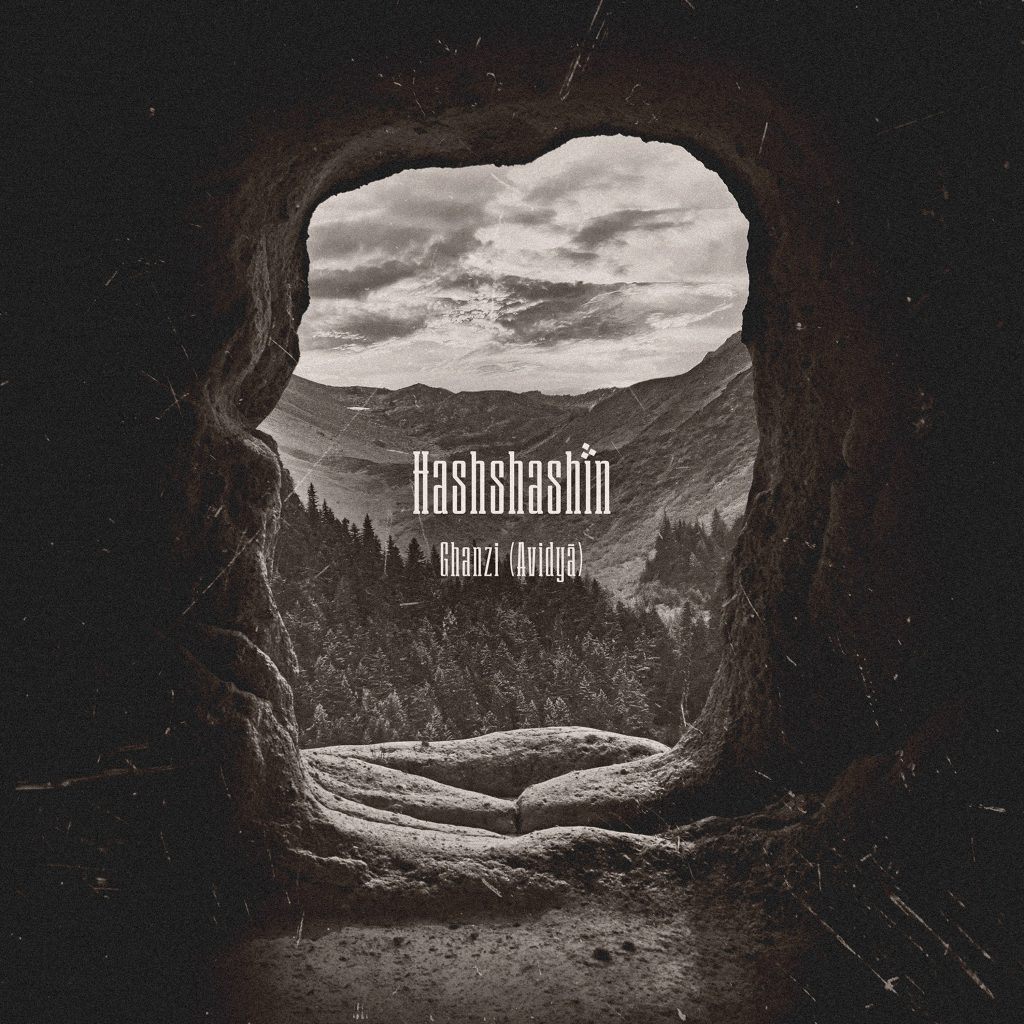Hashshashin return with their new record Śaraṇaṃ – the album’s first single Ghanzi (Avidyā) provides a nice bridge between 2019’s Badakhshan and the new record.
On Śaraṇaṃ the Sydney-based trio weave three intricate compositions, drawing inspiration from artists like Secret Chiefs 3, Om and Grails as well as the classical and folk music of Afghanistan.
While still grounded in the band’s signature blend of odd time-signatures, psychedelia and transcendental drone, Śaraṇaṃ demonstrates how the trio have evolved since their expansive sophomore album Badakhshan (2019), which featured stringed instruments from across Tajikistan, Iran, Afghanistan, and Pakistan in addition to bass and drums.
The new record reveals a more focused and cohesive sound, primarily centered on the Afghan rubab, which guitarist Lachlan R. Dale has spent much of the last five years studying. Each song embraces the sonic and dynamic possibilities of the ancient instrument, creating a mood that is both reflective and hypnotic, with evocative compositions that slowly transport listeners across deserts, small towns, and the Hindu Kush.
“I’ve fallen in love with the Afghan rubab,” says Lachlan. “I find myself drawn to it. Its sound has an intoxicating and trance-inducing quality, so it’s no wonder that it has had a place in mystical and shamanic practices of South-Central Asia. Specifically, I’ve been studying Afghanistan’s beautiful classical rubab tradition, which draws on Indian classical music, and is exemplified by artists like Ustad Mohammad Omar, Ustad Rahim Khushnawaz, and Homayoun Sakhi.”
The album’s first single Ghanzi (Avidyā) provides a nice bridge between 2019’s Badakhshan and the new record. Featuring cycling rhythmic motifs, snaking melody lines, and the distinctive, meditative sound of the Afghan rubab, the trio sketch out a journey to the east with the help of violinist Natalya Bing.
“While this song gives some sense of an expedition across distant lands, it has a turn mid-way towards the inner world,” explains guitarist Lachlan R. Dale. “It suggests something lying beneath the apparent world, and marks our point of departure for the record as we descend deeper and deeper inwards.”
In spite of the cinematic feel, this is a more inwardly-focused album than its predecessor, following a concept explicitly grounded in spiritual practice. Śaraṇaṃ is a Buddhist-Sanskrit term meaning ‘to take refuge’, while each song names both a historical region of the South-Central Asia and a Buddhist concept – Dhyāna (a blissful state of meditative absorption), Ahiṃsā (non-violence and respect for all life), and Śūnyatā (emptiness/impermanence). The record’s jacket shows a cave retreat on the front, and a beautiful shot of the Swat Valley in present day Pakistan – an allusion to the region’s Buddhist history.
“Śaraṇaṃ is the natural outcome of our many years playing together, and of getting comfortable with our methods of experimentation and expression,” explains drummer Evan McGregor. “It’s a logical progression in our songwriting process, blending and refining elements from our debut nihsahshsaH and the following album Badakhshan.”
This record also marks a change in production, with drummer Evan McGregor taking on mixing duties, providing the band more time to experiment and refine the sound of the album.
On the final song on the album, Sindh (Śūnyatā), Lachlan reprises his role as guitarist to accompany Evan’s beautiful composition on the Estonian hang drum, which he plays alongside a hybrid drum kit. The track is glued together by Cam Macdonald’s minimalist basslines, who plays just enough to enhance the atmosphere and subtly reveal the hidden cross-rhythms. It’s an appropriate way to conclude a release that encourages reflection and contemplation, and seeks in its own small way to bridge the cultures of east and west.
With Śaraṇaṃ, Hashshashin continue to explore the possibilities of evocative, instrumental music, pushing beyond the bounds and limitations of post and progressive rock. They remain one of Australia’s most interesting and rewarding underground acts, breaking their own path to new sounds and inspirations, and seeking to take listeners on the journey with them.
Hashshashin’s new record Śaraṇaṃ is out 10 November on Art As Catharsis. The first single Ghanzi (Avidyā) sees release on 15 September.


